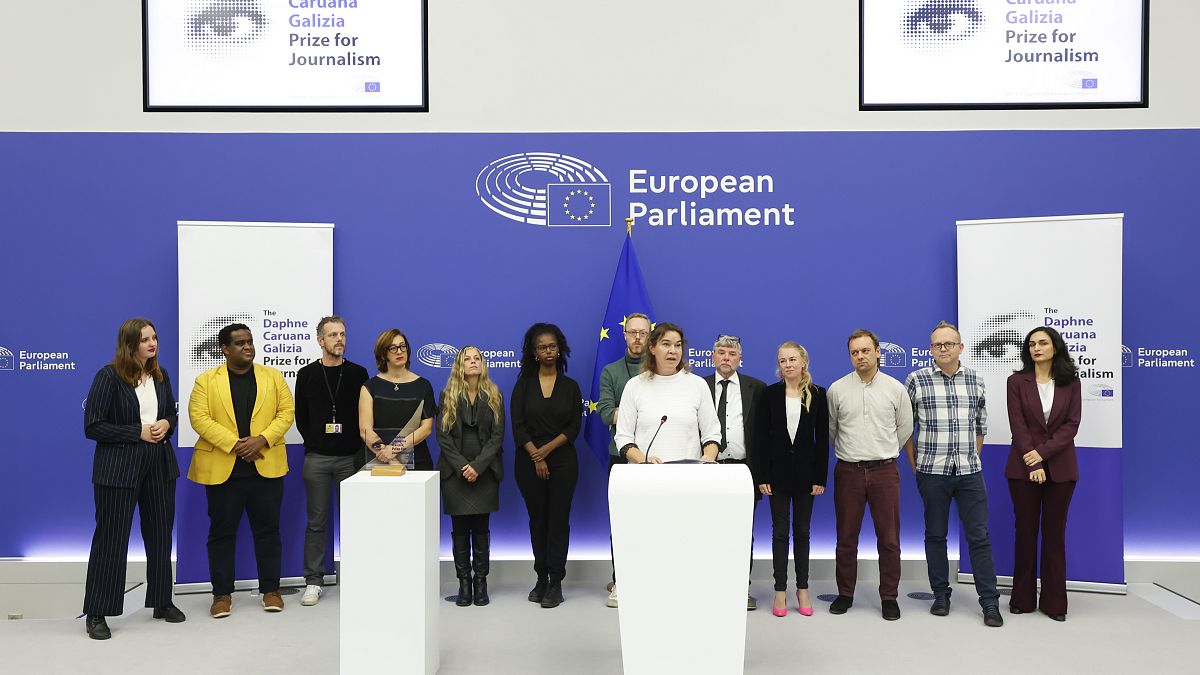An extensive investigation conducted by multiple media outlets across Europe has shed light on the alarming disappearance of over 50,000 child migrants. This groundbreaking research led by Dutch journalist Geesje van Haren has been recognized with the prestigious European Parliament’s 2024 Daphne Caruana Galizia Prize for Journalism. The project, known as Lost in Europe, revealed that on average nearly 47 migrant children arriving in Europe go missing every day. Many of these vulnerable children fall victim to human trafficking, or get caught up in the EU’s crackdown on people smuggling gangs, leading to their imprisonment in adult detention facilities.
Documentation failures were also uncovered during the investigation, indicating significant discrepancies in reporting and documentation practices across 31 European countries. This raised concerns that the actual number of missing children might be even higher than the reported figures. The initial research conducted in 2021 found that more than 18,000 migrant children had gone missing in Europe between 2018 and 2020, hinting at a long-standing issue that has been overlooked for years. Geesje van Haren highlighted that the team encountered challenges in accessing data from certain countries, with France failing to respond and Spain’s data not differentiating between adults and minors.
Despite the obstacles faced during the investigation, van Haren remains hopeful about the future, particularly with the new EU pact on migration and asylum potentially leading to more stringent data collection methods. This could potentially reveal even more missing children in the coming years, providing a more accurate picture of the scale of the issue. Lost in Europe’s commitment to uncovering the stories of missing or ‘lost’ migrant children began in response to a startling comment made by a former Europol chief of staff in 2016, highlighting the urgency of addressing this pressing humanitarian crisis.
The heart-wrenching accounts of missing migrant children underscore the failures of the current systems in place to protect these vulnerable individuals. Van Haren emphasized that the police system often falls short in safeguarding these children, and faces immense pressure in balancing investigations related to human trafficking, drugs, and other crimes. The link between human trafficking and drug-related activities further complicates the issue, as many missing children end up in prisons or detention centers due to misunderstandings or miscommunication during border crossings and law enforcement operations.
The Lost in Europe team’s dedication to shedding light on the plight of migrant children has been recognized with a prestigious journalism award, highlighting the importance of investigative journalism in uncovering uncomfortable truths. The project’s comprehensive research efforts have exposed the harsh realities faced by thousands of children who go missing shortly after arriving in Europe. The team’s plans to launch a fresh investigation in three years time demonstrate their commitment to advocating for the protection and welfare of migrant children, and to ensure that their stories are not forgotten or overlooked amid the complexities of the European migration crisis.
In conclusion, the Lost in Europe project serves as a poignant reminder of the challenges faced by migrant children in Europe, and the urgent need for improved policies and practices to address the issue of missing children. Through diligent investigative journalism and advocacy efforts, Geesje van Haren and her team have brought attention to a critical human rights issue that demands immediate action. The European Parliament’s recognition of their work underscores the significance of their findings, and reinforces the importance of supporting initiatives that aim to protect and support migrant children in Europe and beyond.










